BGM examples
Michael D. Sumner
2020-04-12
Source:vignettes/BGM_examplefiles.Rmd
BGM_examplefiles.RmdAvailable BGM examples
The bgmfiles package contains several real-world example BGM files.
Obtain every available BGM file and plot in native coordinates.
library(rbgm)
## Loading required package: raster## Loading required package: splibrary(bgmfiles) ## turn +proj into line separated text breakproj <- function(x) { paste(strsplit(x, " ")[[1]], collapse = "\n") } files <- bgmfiles() for (i in seq_along(files)) { bgm <- bgmfile(files[i]) boxes <- boxSpatial(bgm) plot(boxes, col = ifelse(boxes$boundary, "#88888880", sample(rainbow(nrow(boxes), alpha = 0.5)))) op <- par(xpd = NA) par(op) title(basename(files[i]), cex = 0.8) mtext(breakproj(proj4string(boxes)), cex = 0.75, side = 2, las = 1, adj = 0, line = 2, at = par("usr")[3], xpd = NA) }

## /Users/runner/runners/2.168.0/work/_temp/Library/bgmfiles/extdata/bgm/ams71.bgm
## file declares 187 faces but contains data for 193 faces
##
## ... returning all 193 faces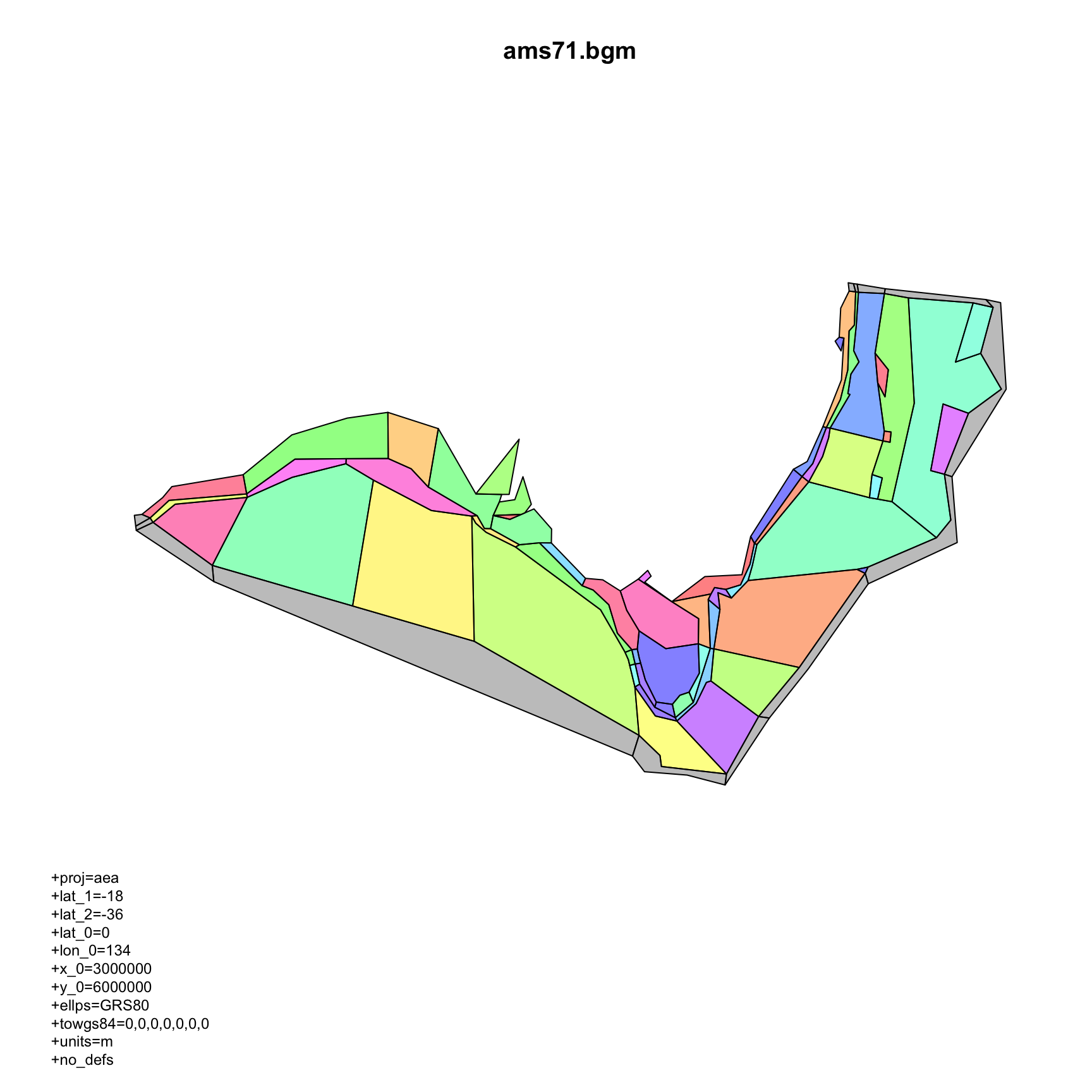
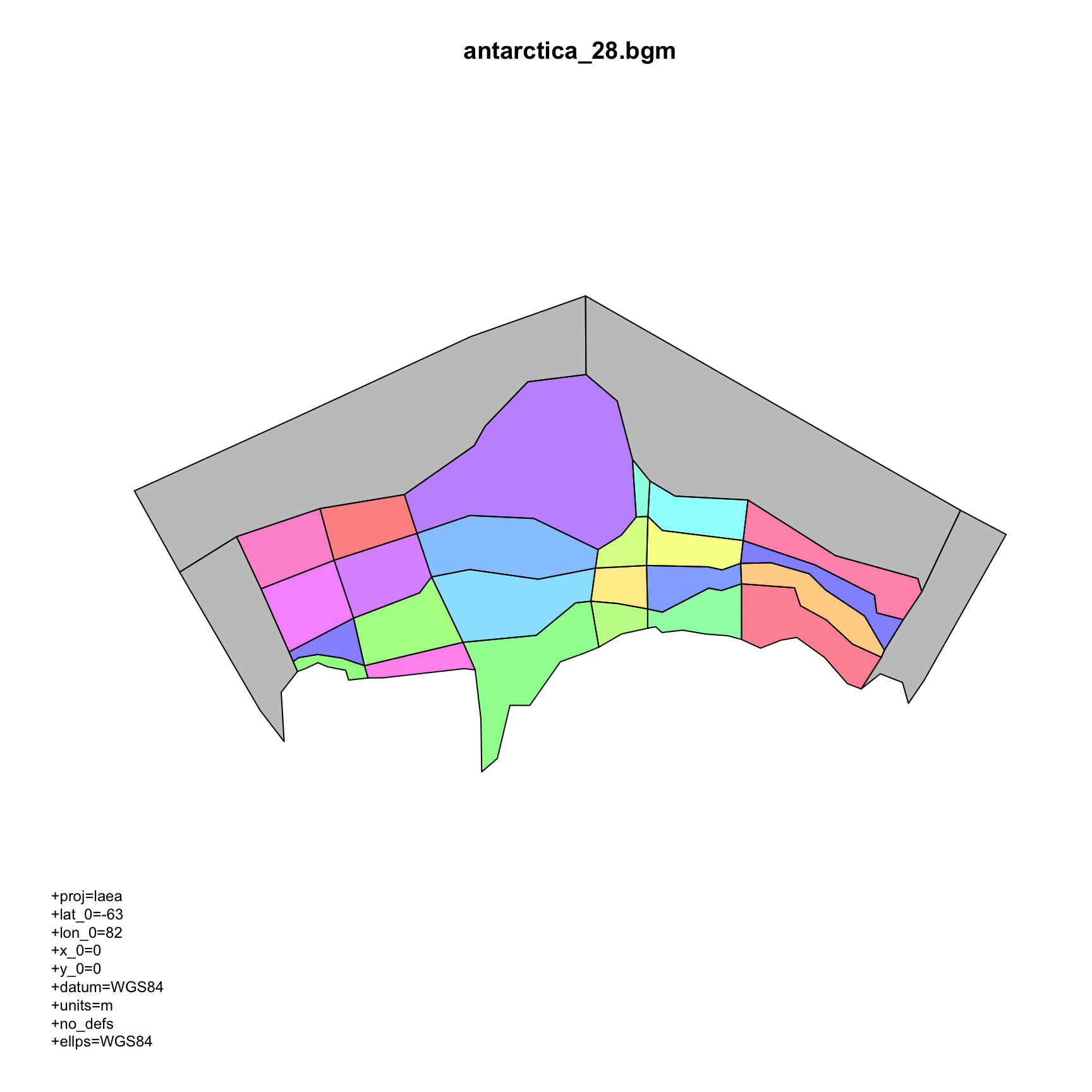
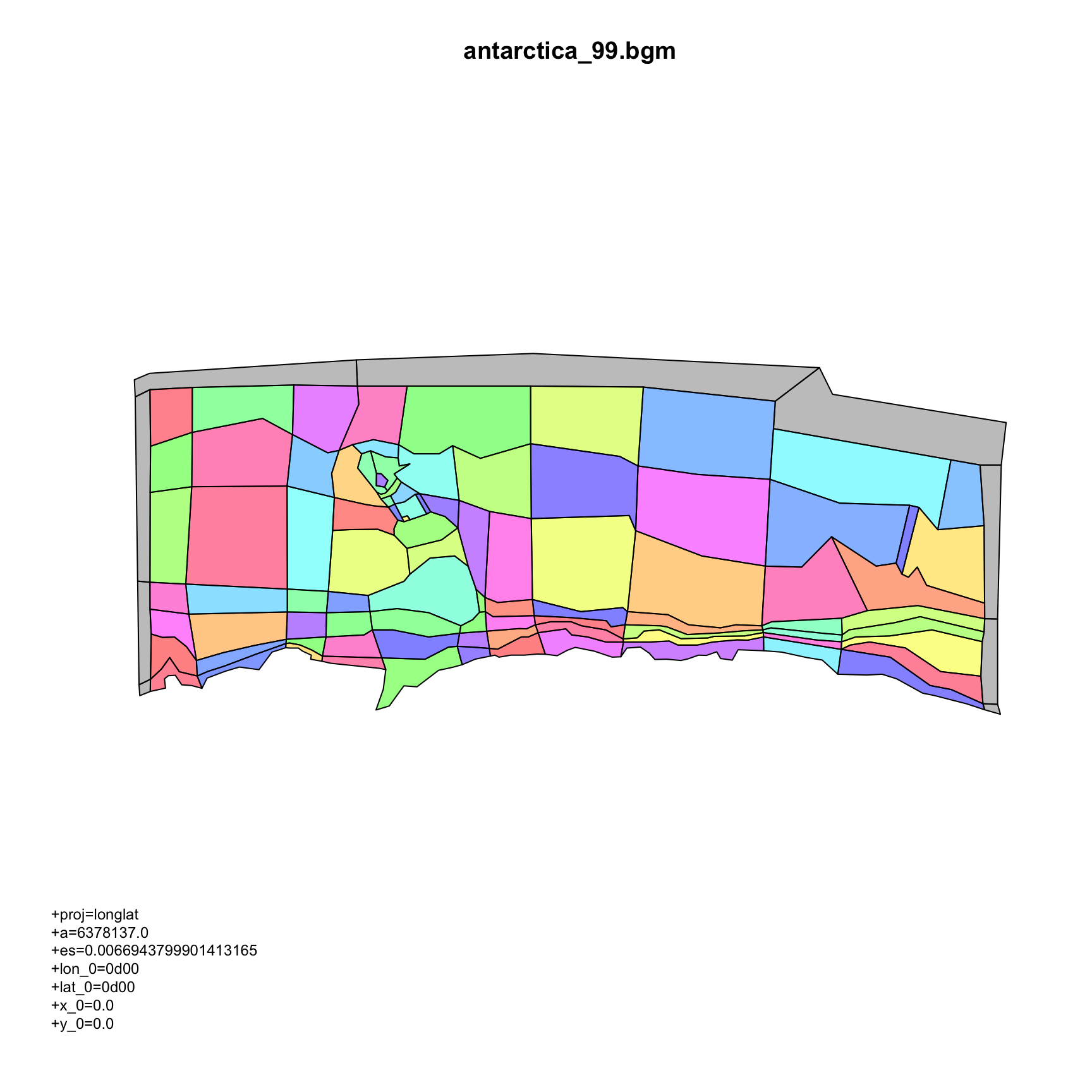
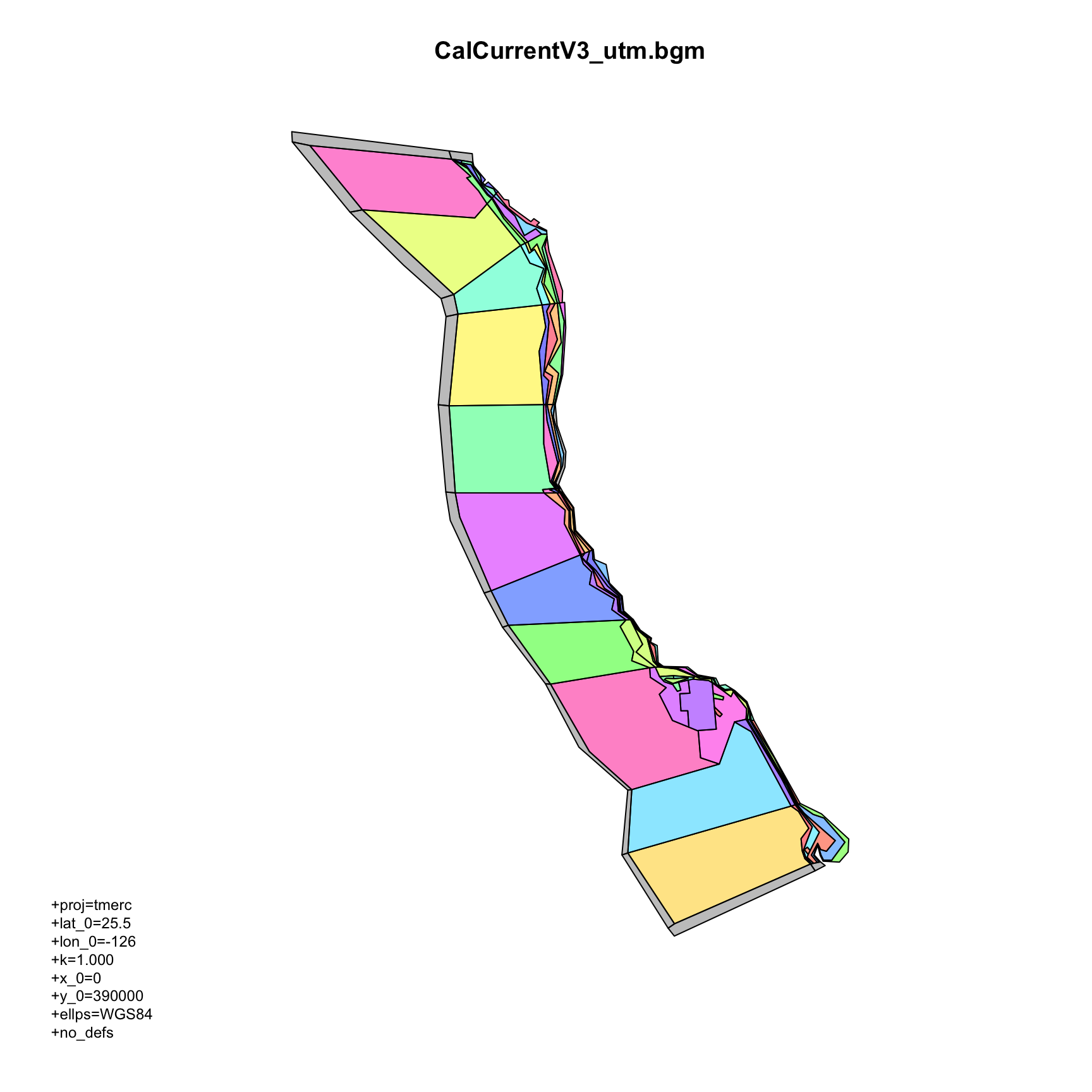
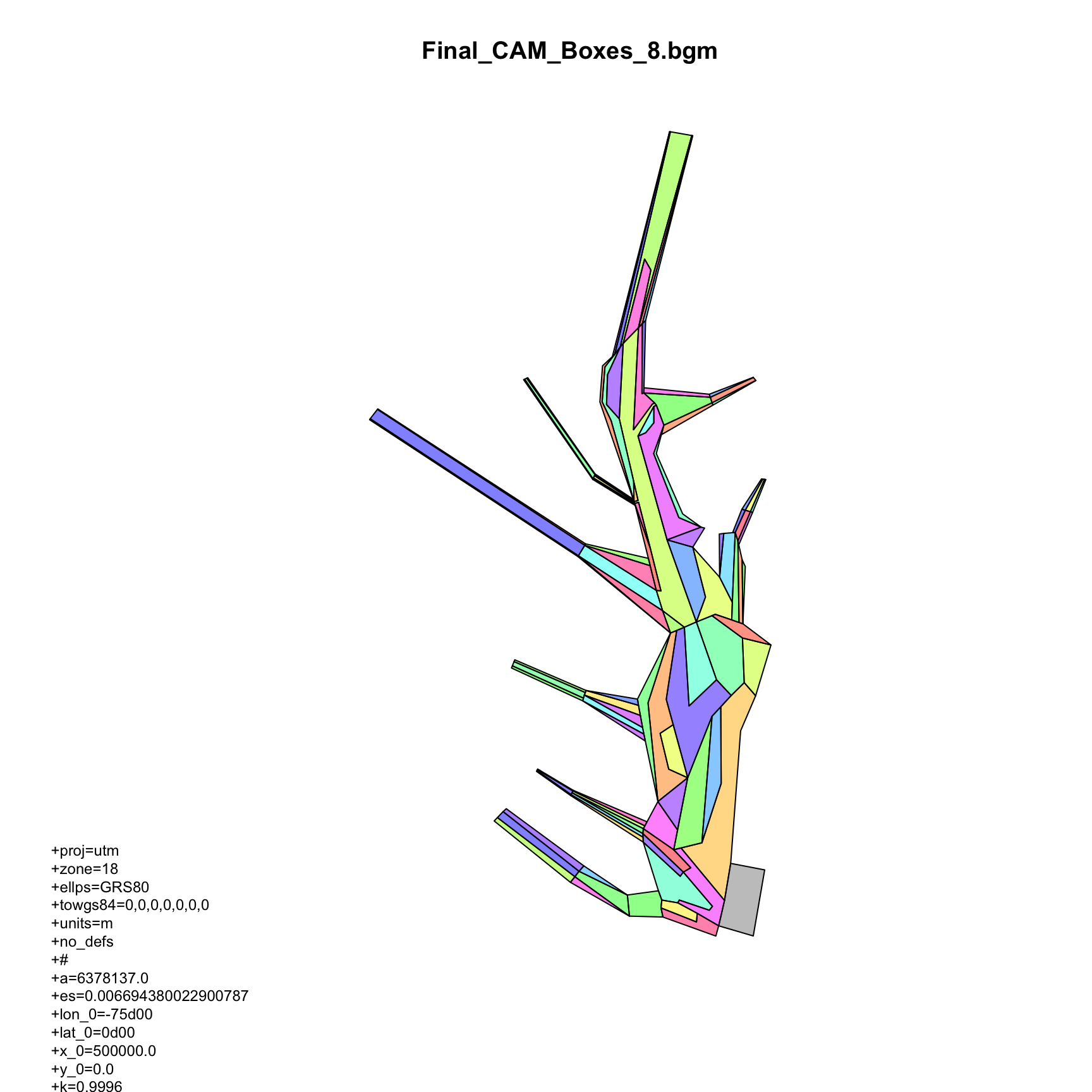
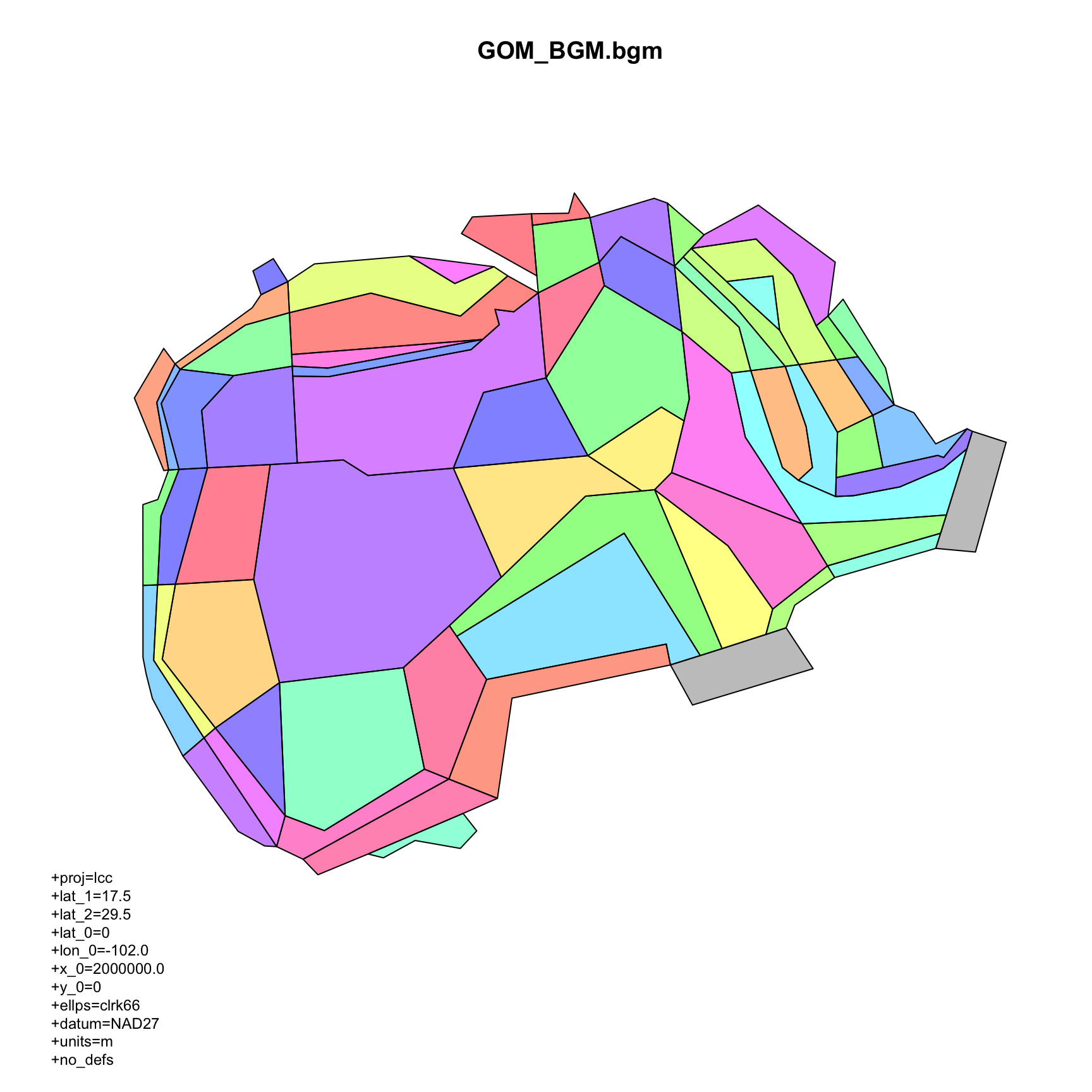
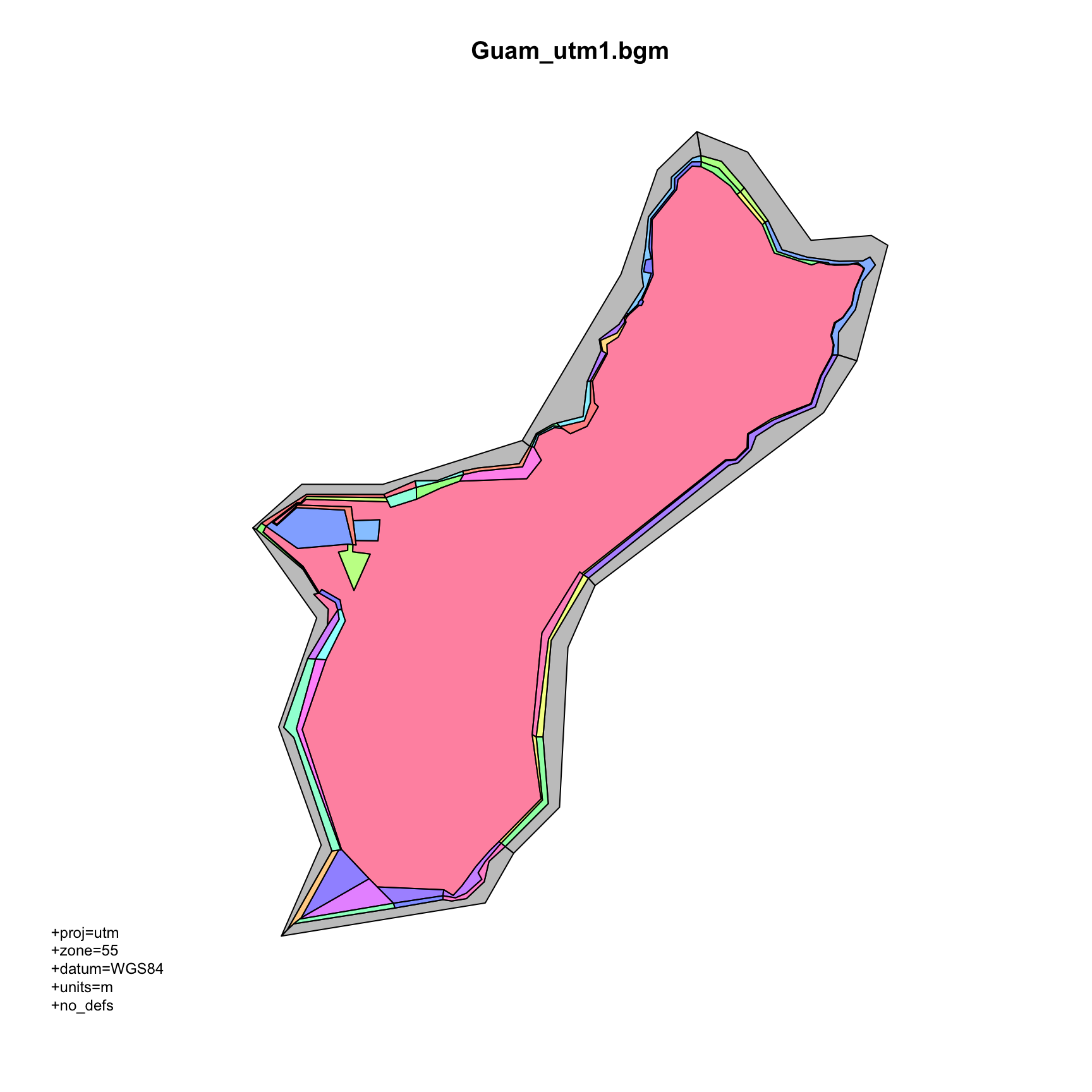
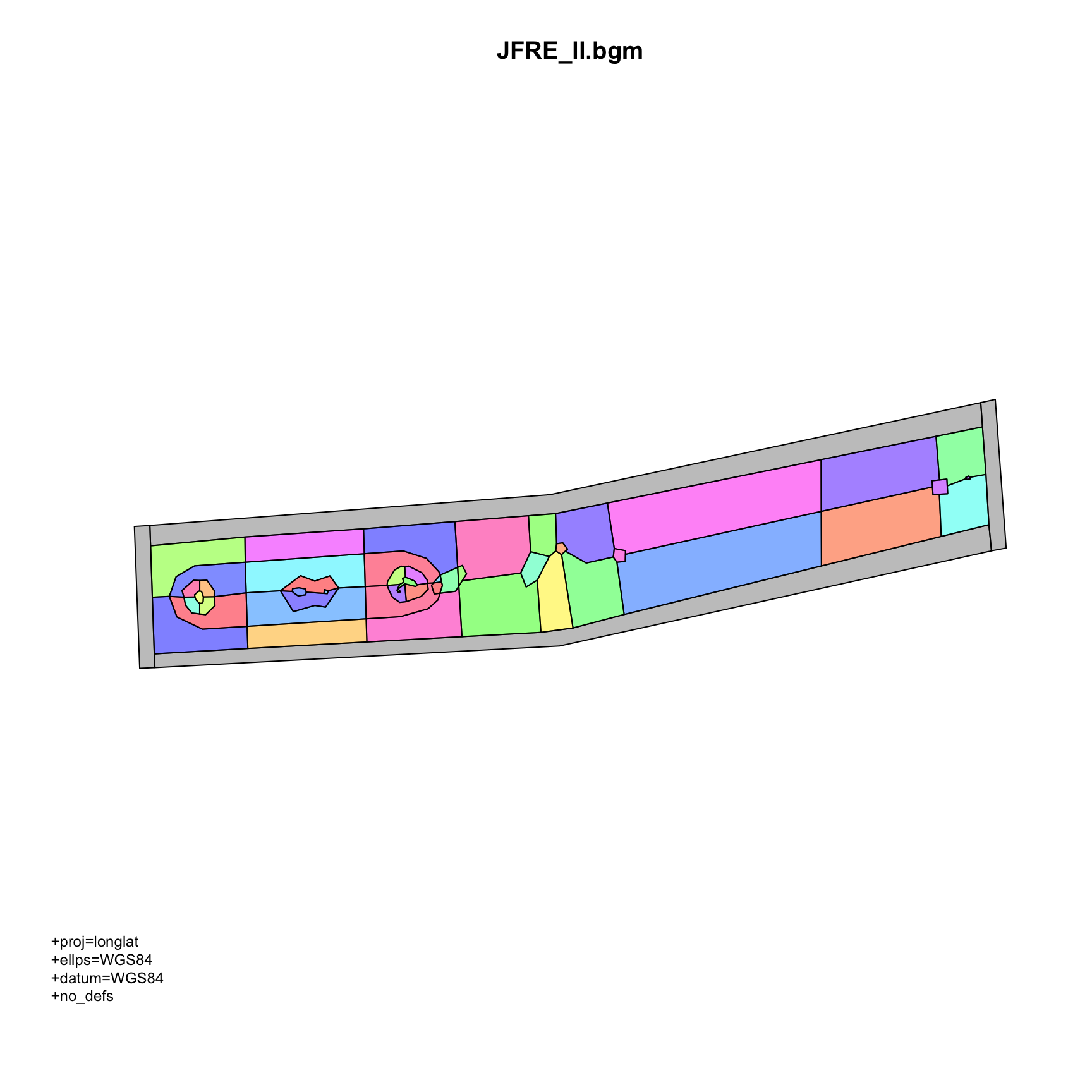
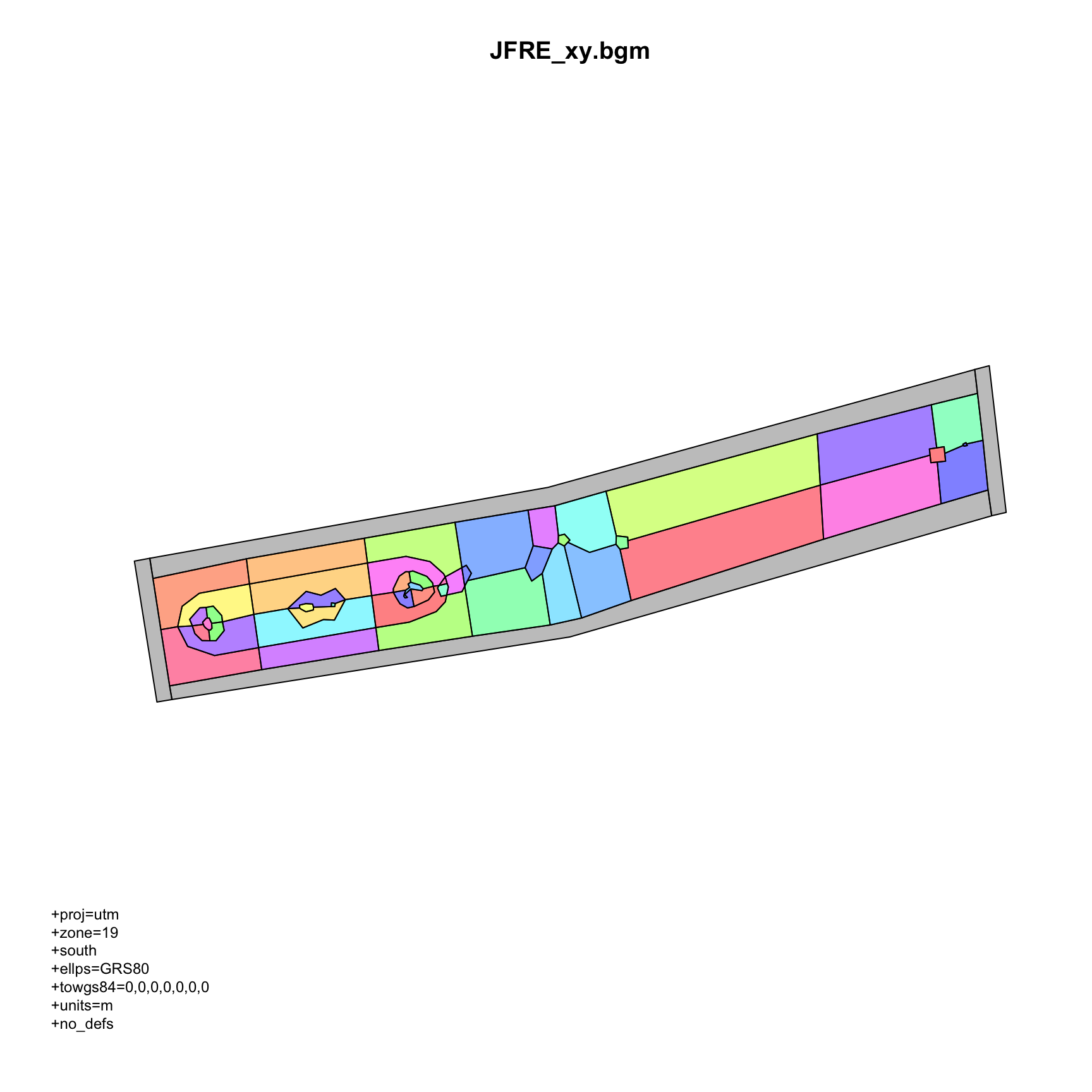
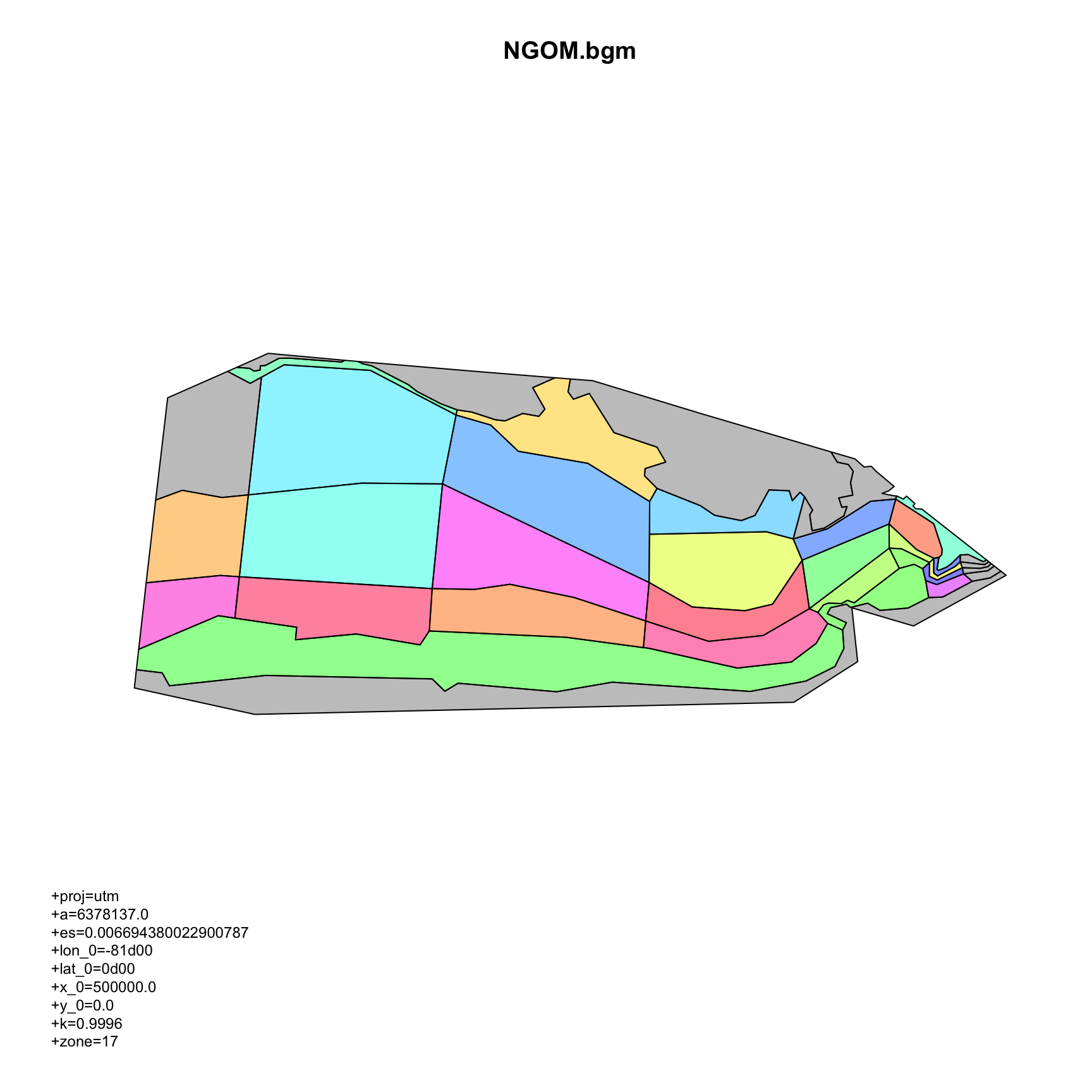
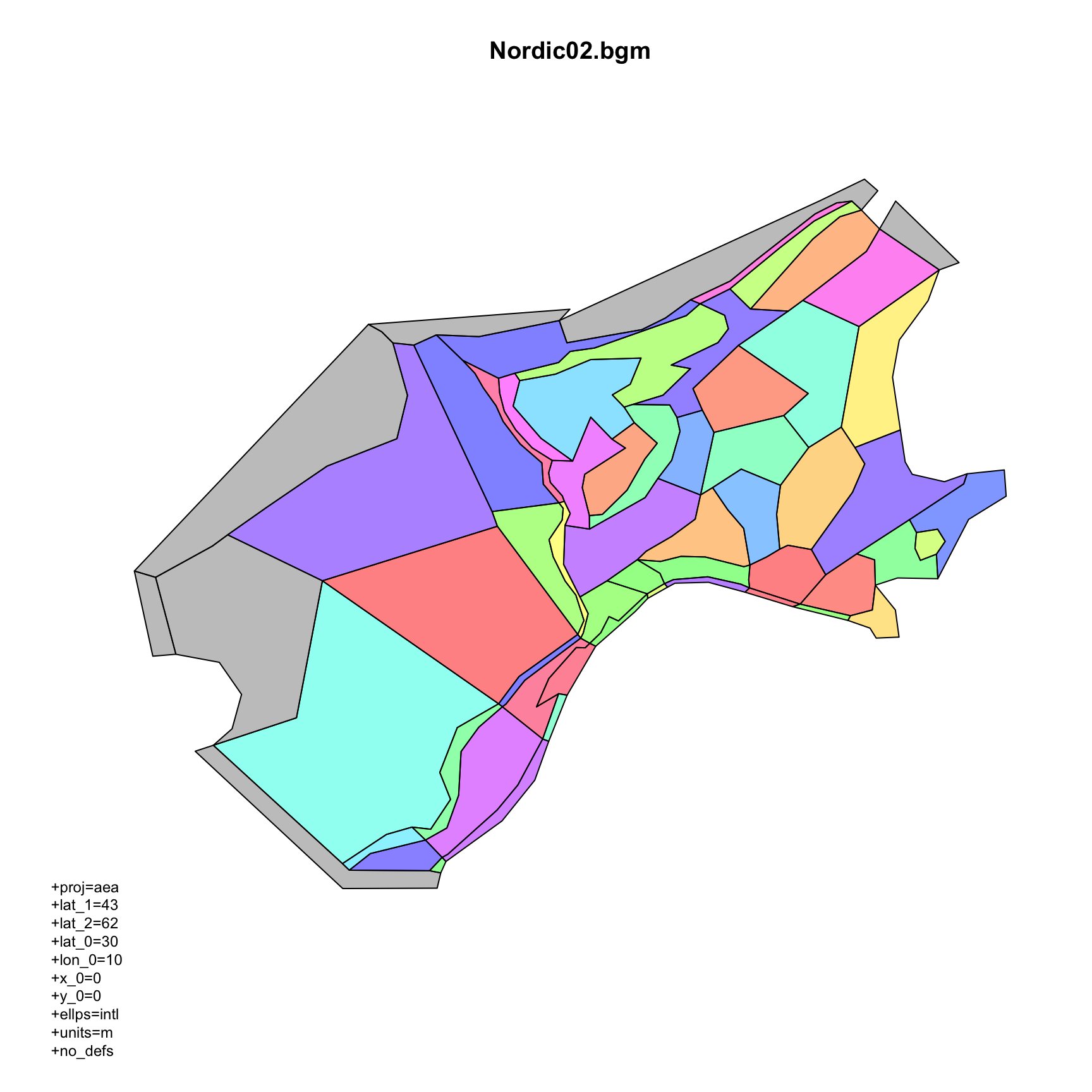
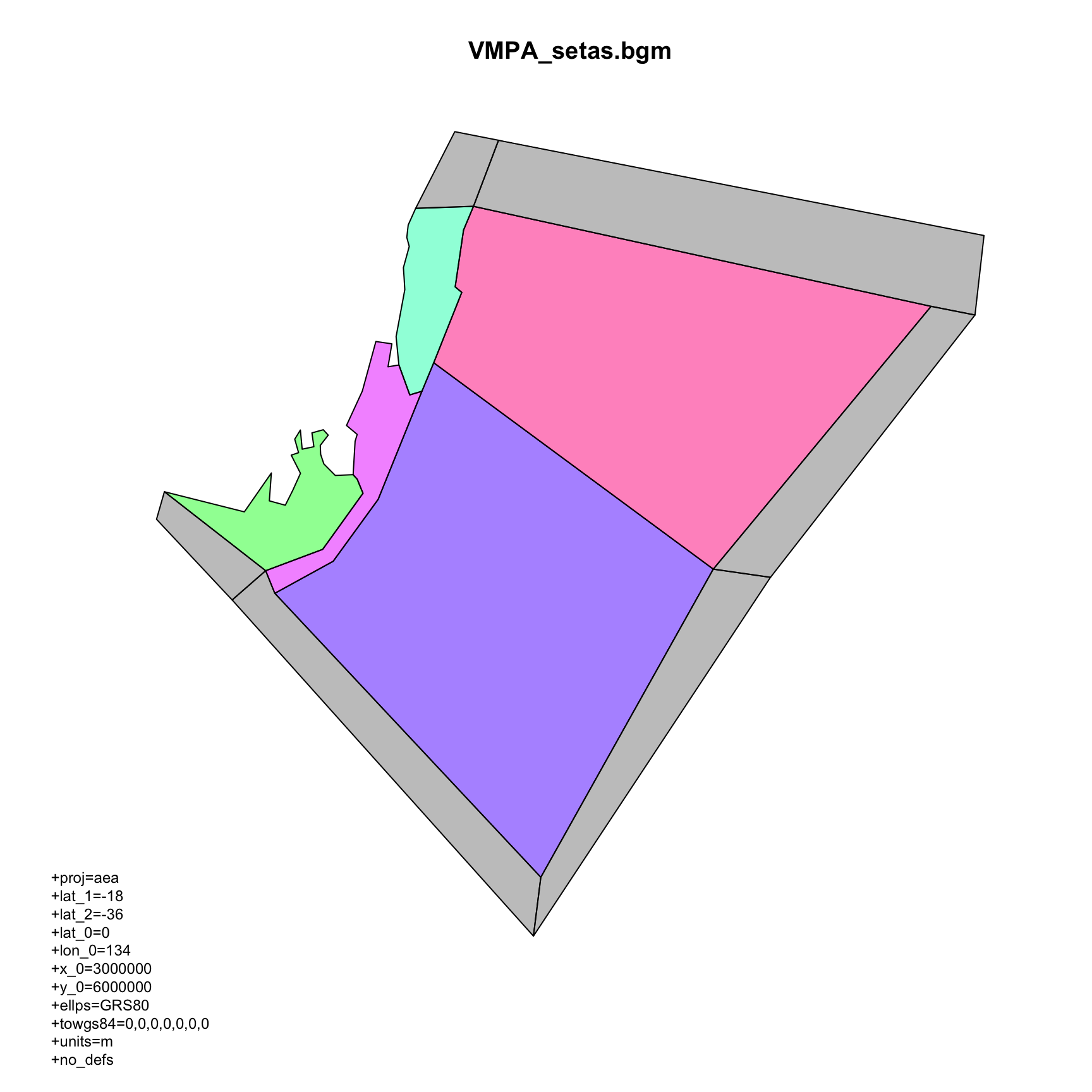
Make one interactive map with all (code not run here to avoid dependencies).
library(rbgm) library(bgmfiles) library(mapview) mp <- mapview() ## empty map view fs <- bgmfiles::bgmfiles() ## paths of all files collected cols <- rainbow(length(fs), alpha = 0.2) ## read in all boxes, convert to SpatialPolygonsDataFrame, and add to the map view for (i in seq_along(fs)) { mp <- mp + mapview(boxSpatial(bgmfile(fs[i])), color = cols[i], alpha = 0.3, layer.name = basename(fs[i])) } ## view the mapview mp